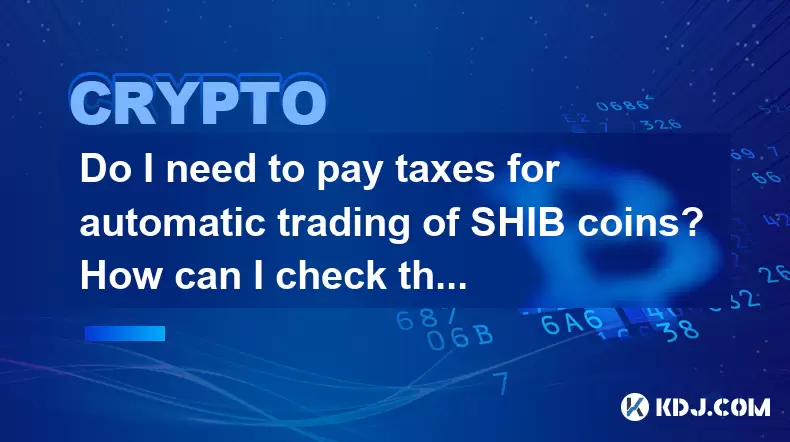-
 Bitcoin
Bitcoin $119000
-2.21% -
 Ethereum
Ethereum $4315
1.01% -
 XRP
XRP $3.151
-3.11% -
 Tether USDt
Tether USDt $0.0000
0.00% -
 BNB
BNB $808.5
-0.71% -
 Solana
Solana $175.8
-4.21% -
 USDC
USDC $0.9999
0.00% -
 Dogecoin
Dogecoin $0.2250
-3.92% -
 TRON
TRON $0.3469
1.77% -
 Cardano
Cardano $0.7818
-3.81% -
 Chainlink
Chainlink $21.47
-2.10% -
 Hyperliquid
Hyperliquid $43.30
-6.81% -
 Stellar
Stellar $0.4370
-2.84% -
 Sui
Sui $3.682
-4.40% -
 Bitcoin Cash
Bitcoin Cash $590.8
2.67% -
 Hedera
Hedera $0.2484
-5.20% -
 Ethena USDe
Ethena USDe $1.001
0.00% -
 Avalanche
Avalanche $23.10
-4.29% -
 Litecoin
Litecoin $119.2
-3.96% -
 Toncoin
Toncoin $3.409
0.90% -
 UNUS SED LEO
UNUS SED LEO $9.016
-1.29% -
 Shiba Inu
Shiba Inu $0.00001304
-3.82% -
 Uniswap
Uniswap $11.18
1.33% -
 Polkadot
Polkadot $3.913
-3.51% -
 Cronos
Cronos $0.1672
-3.08% -
 Dai
Dai $1.000
0.02% -
 Ethena
Ethena $0.7899
-4.70% -
 Bitget Token
Bitget Token $4.400
-1.23% -
 Pepe
Pepe $0.00001132
-5.93% -
 Monero
Monero $257.9
-6.44%
Do I need to pay taxes for automatic trading of SHIB coins? How can I check the tax policies of different countries?
Automatic trading of SHIB coins may be taxable as capital gains, depending on your country's laws; consult a tax professional for personalized advice.
May 20, 2025 at 02:00 am

The question of whether you need to pay taxes on automatic trading of SHIB coins is a complex one, as it depends on the tax laws of the country you reside in. Automatic trading refers to the use of software or bots to buy and sell cryptocurrencies like SHIB without manual intervention. While the technology behind automatic trading is fascinating, the tax implications are what we'll focus on here.
Understanding Taxation on Cryptocurrency Trading
Cryptocurrency taxation varies widely from one country to another. In general, most countries treat cryptocurrencies as property or assets, which means that profits from trading them can be subject to capital gains tax. When you engage in automatic trading of SHIB coins, any profits you make from selling SHIB at a higher price than you bought it for could be taxable.
How to Determine Your Tax Liability
To understand your tax liability for automatic trading of SHIB coins, you need to:
- Determine your country's stance on cryptocurrency taxation: Some countries have clear guidelines, while others are still developing their policies.
- Track your transactions: Keep detailed records of all your SHIB trades, including the date, amount, and price at which you bought and sold.
- Calculate your gains or losses: Determine the profit or loss you made on each trade. This is typically the difference between the selling price and the cost basis (the price you paid for the SHIB).
- Consult with a tax professional: Given the complexity of cryptocurrency taxation, it's advisable to consult with a tax advisor who is knowledgeable about crypto taxes.
Checking Tax Policies of Different Countries
To check the tax policies of different countries regarding cryptocurrencies, you can follow these steps:
- Visit official government websites: Most countries have a dedicated section on their tax authority's website that explains the taxation of cryptocurrencies.
- Use online resources: Websites like Koinly, CoinLedger, and CryptoTrader.Tax provide comprehensive guides on cryptocurrency taxation in various countries.
- Join cryptocurrency communities: Forums like Reddit have communities dedicated to cryptocurrency taxation where you can ask questions and learn from others' experiences.
- Consult with local tax advisors: Professionals who specialize in cryptocurrency taxation can provide personalized advice based on your specific situation.
Examples of Tax Policies in Different Countries
Here are some examples of how different countries treat cryptocurrency taxation:
- United States: The IRS treats cryptocurrencies as property, meaning that trading SHIB coins can result in capital gains or losses. Short-term gains (held for less than a year) are taxed as ordinary income, while long-term gains (held for more than a year) are taxed at a lower rate.
- United Kingdom: The UK treats cryptocurrencies as assets, subjecting profits from trading to Capital Gains Tax. The first £12,300 of gains in a tax year are tax-free.
- Germany: In Germany, cryptocurrencies held for more than a year are tax-free, but short-term gains are taxed as income.
- Japan: Japan treats cryptocurrencies as legal property, and profits from trading are subject to a 20% capital gains tax.
Keeping Records for Tax Purposes
Maintaining accurate records is crucial for complying with tax laws and calculating your tax liability. Here are some tips for keeping records of your SHIB trades:
- Use a crypto tax software: Tools like Koinly, CoinLedger, and CryptoTrader.Tax can automatically import your transaction data from exchanges and calculate your gains and losses.
- Keep transaction receipts: Save copies of all your buy and sell orders, including the date, amount, and price.
- Record your cost basis: Keep track of the price you paid for each SHIB coin, as this will be used to calculate your gains or losses.
- Document any fees: Transaction fees, withdrawal fees, and other costs associated with trading should be recorded, as they can be deducted from your gains.
Reporting Your Taxes
When it comes time to report your taxes, you'll need to include your SHIB trading profits or losses on your tax return. The process varies by country, but here are some general steps:
- Fill out the appropriate tax forms: In the U.S., you would report your crypto gains and losses on Form 8949 and Schedule D of your Form 1040. Other countries have similar forms.
- Include all relevant information: Make sure to include the date of each transaction, the amount of SHIB bought or sold, the price, and the resulting gain or loss.
- Submit your tax return: File your tax return by the deadline, and pay any taxes owed on your crypto gains.
Frequently Asked Questions
Q: Can I deduct losses from trading SHIB coins on my taxes?
A: Yes, in many countries, you can deduct losses from trading SHIB coins from your taxable income. However, the rules vary by country, so it's important to consult with a tax professional to understand the specific regulations in your jurisdiction.
Q: Do I need to report every single SHIB trade on my tax return?
A: Yes, you are generally required to report every single trade on your tax return. This includes both profitable and unprofitable trades. Keeping detailed records throughout the year can make this process easier.
Q: What happens if I don't report my SHIB trading profits on my taxes?
A: Failing to report your SHIB trading profits can result in penalties and fines from your country's tax authority. It's important to comply with tax laws to avoid legal issues.
Q: Can I use a tax loss harvesting strategy with SHIB coins?
A: Yes, tax loss harvesting involves selling assets at a loss to offset gains from other investments. This strategy can be applied to SHIB coins, but you should consult with a tax advisor to ensure you're following the correct procedures and taking advantage of all available tax benefits.
Disclaimer:info@kdj.com
The information provided is not trading advice. kdj.com does not assume any responsibility for any investments made based on the information provided in this article. Cryptocurrencies are highly volatile and it is highly recommended that you invest with caution after thorough research!
If you believe that the content used on this website infringes your copyright, please contact us immediately (info@kdj.com) and we will delete it promptly.
- Arc Blockchain: Circle's Layer-1 Play Amidst $428 Million Loss
- 2025-08-12 20:30:13
- XRP Price: Riding the Bull Cycle Wave or Hitting a Wall?
- 2025-08-12 20:50:12
- Cloud Mining in 2025: Chasing Passive Income and High Returns
- 2025-08-12 20:30:13
- Solana Price, Meme Coins, and 100x Gains: What's the Hype?
- 2025-08-12 20:50:12
- Japan, Bitcoin, and Treasuries: A New Era of Corporate Finance?
- 2025-08-12 18:30:12
- Bitcoin Bull Market: Decoding the Indicators for the Next Big Move
- 2025-08-12 18:30:12
Related knowledge

How to purchase Aragon (ANT)?
Aug 09,2025 at 11:56pm
Understanding Aragon (ANT) and Its PurposeAragon (ANT) is a decentralized governance token that powers the Aragon Network, a platform built on the Eth...

Where to trade Band Protocol (BAND)?
Aug 10,2025 at 11:36pm
Understanding the Role of Private Keys in Cryptocurrency WalletsIn the world of cryptocurrency, a private key is one of the most critical components o...

What is the most secure way to buy Ocean Protocol (OCEAN)?
Aug 10,2025 at 01:01pm
Understanding Ocean Protocol (OCEAN) and Its EcosystemOcean Protocol (OCEAN) is a decentralized data exchange platform built on blockchain technology,...

How to invest in Kyber Network Crystal v2 (KNC)?
Aug 12,2025 at 05:21pm
Understanding Kyber Network Crystal v2 (KNC)Kyber Network is a decentralized liquidity hub built on the Ethereum blockchain that enables instant token...

Where can I buy UMA (UMA)?
Aug 07,2025 at 06:42pm
Understanding UMA and Its Role in Decentralized FinanceUMA (Universal Market Access) is an Ethereum-based decentralized finance (DeFi) protocol design...

What exchanges offer Gnosis (GNO)?
Aug 12,2025 at 12:42pm
Overview of Gnosis (GNO) and Its Role in the Crypto EcosystemGnosis (GNO) is a decentralized prediction market platform built on the Ethereum blockcha...

How to purchase Aragon (ANT)?
Aug 09,2025 at 11:56pm
Understanding Aragon (ANT) and Its PurposeAragon (ANT) is a decentralized governance token that powers the Aragon Network, a platform built on the Eth...

Where to trade Band Protocol (BAND)?
Aug 10,2025 at 11:36pm
Understanding the Role of Private Keys in Cryptocurrency WalletsIn the world of cryptocurrency, a private key is one of the most critical components o...

What is the most secure way to buy Ocean Protocol (OCEAN)?
Aug 10,2025 at 01:01pm
Understanding Ocean Protocol (OCEAN) and Its EcosystemOcean Protocol (OCEAN) is a decentralized data exchange platform built on blockchain technology,...

How to invest in Kyber Network Crystal v2 (KNC)?
Aug 12,2025 at 05:21pm
Understanding Kyber Network Crystal v2 (KNC)Kyber Network is a decentralized liquidity hub built on the Ethereum blockchain that enables instant token...

Where can I buy UMA (UMA)?
Aug 07,2025 at 06:42pm
Understanding UMA and Its Role in Decentralized FinanceUMA (Universal Market Access) is an Ethereum-based decentralized finance (DeFi) protocol design...

What exchanges offer Gnosis (GNO)?
Aug 12,2025 at 12:42pm
Overview of Gnosis (GNO) and Its Role in the Crypto EcosystemGnosis (GNO) is a decentralized prediction market platform built on the Ethereum blockcha...
See all articles

























































































